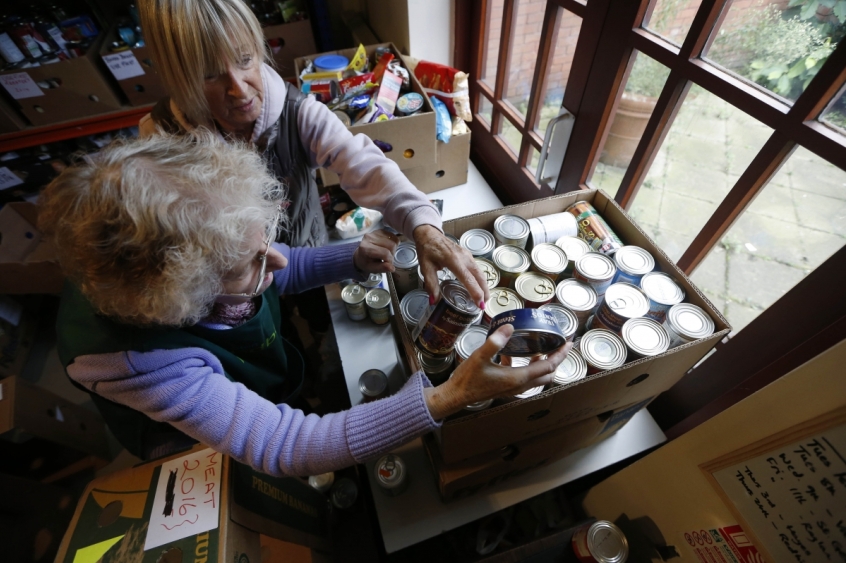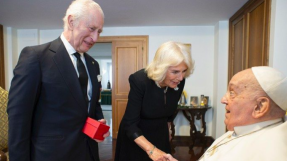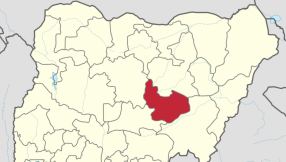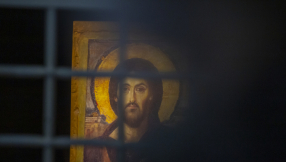
The Labour Party is using its opposition day to draw attention to the rising use of food banks across the UK.
The move comes after food author and Guardian columnist Jack Monroe partnered with the Trussell Trust and the Unite union.
Together, they organised a petition to bring the debate to Parliament, which was signed by approximately 142,000 people.
In the petition's description, Ms Monroe describes the poverty she had found herself in at one point.
"On Christmas Day 2011, I sat on my sofa by myself in a freezing cold flat, with no television, no presents, no food in the fridge that had been turned off at the mains. I had no tree, no decorations, nothing to mark the day as any different from any other," she said.
"I was unemployed, broke, and broken. I hadn't bought a single present for my one-year-old son, and instead let him go to his father's for the day, knowing I could not give him a Christmas myself.
"I know what it's like to turn the fridge off because it's empty anyway. To unscrew the light bulbs to alleviate the temptation of turning them on. I spent countless mornings sitting across the breakfast table from my son, envious of his small portion of cereal mashed with a little bit of water, or his slice of toast with jam."
"'Where's Mummy's breakfast?' he used to ask. Mummy wasn't hungry. Mummy hadn't been hungry the previous night either, and I used to wonder how long it would take him to notice that Mummy wasn't very hungry at all anymore."
A big part of her process to move out of this state was the resources supplied to her via the local food bank.
The aim of the debate in Parliament is to highlight the fact that despite news stories of the UK's economic growth, poverty is still very real and is being further exacerbated for some by the Government's policies.
In September, in her speech to the Trade Union Congress, Ms Monroe said: "Since April 2013, and the introduction of the Bedroom Tax, food bank use in the UK has increased 175%."
The aim of the campaign is also to make politicians confront what is happening. While Education Secretary Michael Gove recently claimed that people who use them do so because they are "not best able to manage their finances", data from the Trussell Trust shows that more than half of those referred to food banks are there because of either delays or cuts to benefits, or benefit sanctions.
Telegraph columnist Robin Aitkin recently claimed that the increased use of food banks was merely linked to their increased availability, rather than actual increased need. "A new service is being offered to more and more communities, and naturally people are using it. The sustained media interest in food banks has acted as a giant advertising campaign," Aitkin wrote.
Ms Monroe argues in her Mirror column that this is untrue: "People cannot simply turn up to a food bank and ask for help, they need to be identified as being in need by a healthcare professional or social services or similar, and referred with a form or a voucher. It isn't, as certain politicians would have you believe, an opportunist desire for free food."
According to figures from the campaign, food bank use in the South East is up over 60 per cent this year, and a third of food bank clients have been referred to the service after a delay to their benefits. A further 19 per cent were referred after their benefits had been cut or stopped altogether. It also warns that many of the employed people using food banks are on zero hour contracts.
The food banks run by the Trussell Trust are intended to be a stop gap emergency measure and not depended on in the long term.
Molly Hodson, from the Trussell Trust is quoted in the Mirror as saying, "Our food banks are different to American and Canadian food banks, they are an emergency service. Where there is a welfare provision, nobody should be at a point where they can't put food on the table long term."
Although the Government commissioned DEFRA to investigate the increased use in food banks this year, its findings have not yet been disclosed.
The debate is taking place in Parliament this afternoon, with Ms Monroe first meeting MPs and campaigners to describe her experiences of poverty in what she calls a "supposedly developed country".













